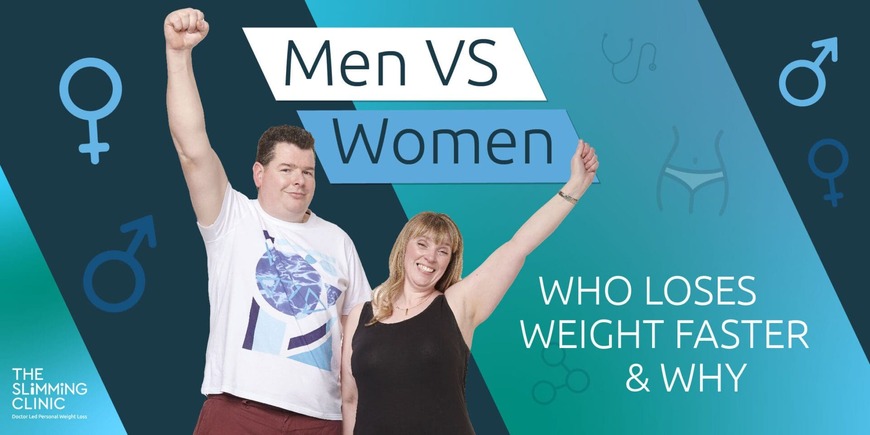Men vs Women Weight Loss: Who Loses Weight Faster and Why?
According to recent studies 26% of women and 25% of men are in the obese range. So when it comes to losing weight which gender is most successful and why?
Of course weight loss isn't a competition, but if you are losing weight with a buddy of the opposite gender, understanding the difference in both your weight loss journeys and success can be helpful.
Understanding Biological Differences
Before we dive into the topic, it is crucial to acknowledge that every individual is unique and weight loss outcomes can vary widely. However, several inherent biological differences between men and women influence their weight loss processes.
- Metabolism: Men typically have a higher metabolic rate than women due to a higher percentage of lean muscle mass and higher levels of testosterone. This higher metabolic rate can contribute to faster weight loss in men.
- Hormonal Factors: Hormones play a significant role in weight regulation. Women have monthly hormonal fluctuations due to their menstrual cycles, which can affect water retention and influence weight fluctuations. Additionally, hormonal differences, such as higher estrogen levels in women, can impact fat storage patterns, making weight loss more challenging in specific areas.
- Body Composition: Men and women differ in terms of body composition. Men tend to have a higher proportion of muscle mass, which increases their basal metabolic rate and facilitates more efficient calorie burning. Women, on the other hand, often have a higher body fat percentage, which can make weight loss a slightly slower process.
Psychological Factors
While biological factors contribute to the speed of weight loss, psychological factors also come into play. Here are some aspects to consider:
- Motivation and Expectations: Motivation levels and weight loss expectations can vary between men and women. Cultural influences and societal norms may place different pressures on individuals, affecting their motivation to lose weight. These factors can impact the effort and consistency one puts into their weight loss journey, ultimately affecting the rate of weight loss.
- Emotional Eating and Coping Mechanisms: Emotional eating is a common challenge faced by both men and women. However, it may affect women more significantly due to hormonal fluctuations and societal pressures. Emotional eating can hinder weight loss progress if not addressed, potentially making the process slower for some individuals.
Strategies for Successful Weight Loss
Regardless of the differences between men and women in terms of weight loss, success ultimately depends on adopting healthy habits and making sustainable lifestyle changes. Here are some strategies that can be beneficial:
- Balanced Diet: Focus on consuming a balanced diet that includes lean proteins, whole grains, fruits, vegetables, and healthy fats. Portion control and mindful eating can help manage calorie intake effectively.
- Regular Physical Activity: Engage in regular physical activity, including both cardiovascular exercises and strength training. Exercise not only helps burn calories but also enhances overall fitness and boosts metabolism.
- Support Systems: Seek support from friends, family, or support groups during your weight loss journey. Having a strong support system can provide encouragement, accountability, and guidance when facing challenges.
- Mindset and Self-Care: Cultivate a positive mindset and practice self-care. Manage stress levels, practice mindfulness, and prioritize adequate sleep, as they all contribute to overall well-being and weight management.
In the battle of men vs. women weight loss, it is challenging to definitively determine who loses weight faster. Biological and psychological factors create inherent differences between men and women, influencing their weight loss processes. While men may experience some advantages due to higher metabolism and body composition, women can achieve successful weight loss with the right strategies and a focus on overall well-being.
Remember, weight loss is not a race but a personal journey towards a healthier lifestyle. Celebrate your progress, stay consistent and seek professional guidance when needed. With dedication and perseverance, both men and women can achieve their weight loss goals and embrace a healthier life.
Looking to start your weight loss journey, then take action today!
Book an appointment with one of our GMC-Registered Doctors who are weight loss experts and can ensure you get the best programme for you. Alternatively request your medication online using our online prescription service.








